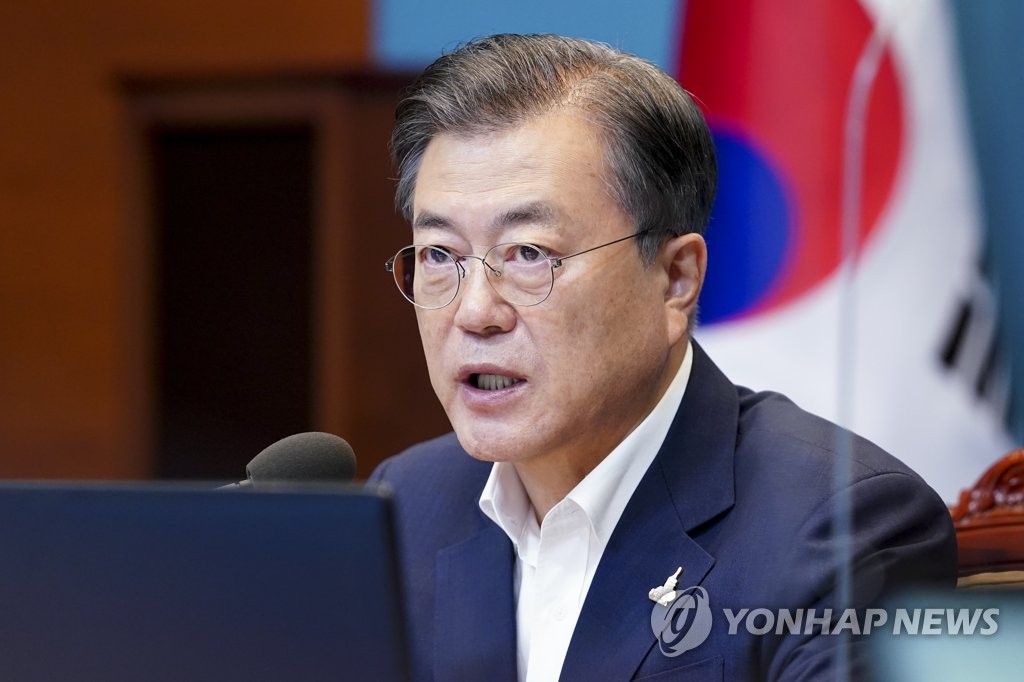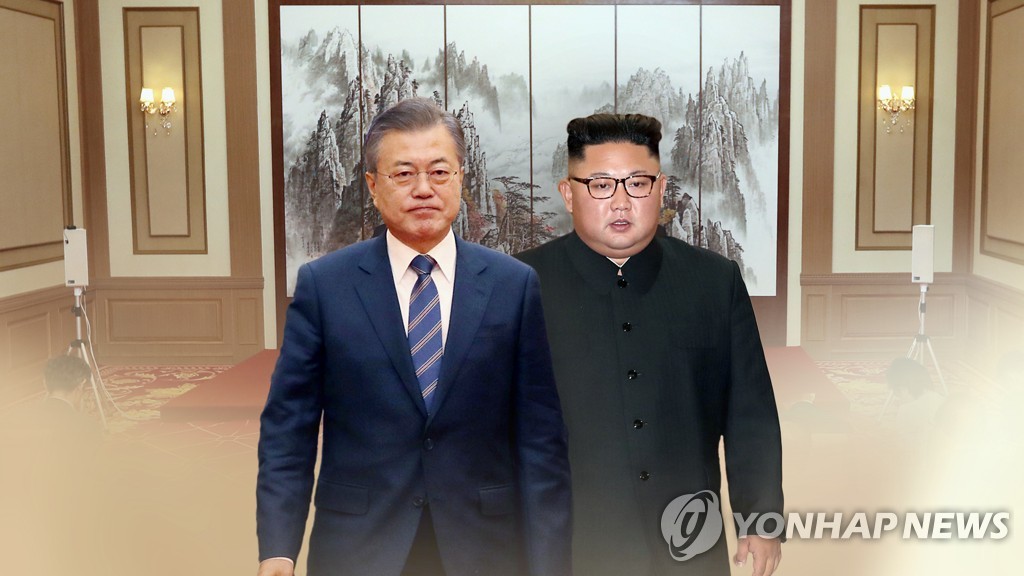- California Assembly OKs highest minimum wage in nation
- S. Korea unveils first graphic cigarette warnings
- US joins with South Korea, Japan in bid to deter North Korea
- LPGA golfer Chun In-gee finally back in action
- S. Korea won’t be top seed in final World Cup qualification round
- US men’s soccer misses 2nd straight Olympics
- US back on track in qualifying with 4-0 win over Guatemala
- High-intensity workout injuries spawn cottage industry
- CDC expands range of Zika mosquitoes into parts of Northeast
- Who knew? ‘The Walking Dead’ is helping families connect
Moon expresses condolences over death of S. Korean official in shooting by N. Korean troops
President Moon Jae-in expressed his condolences Monday and offered a public apology over the death of a South Korean civil servant in a shooting by North Korean troops, calling it a “regrettable and unfortunate” incident.
“Regardless of how the victim went to the North Korean waters, I offer words of deep condolences and consolation to the bereaved family members over their grief,” he said.
The tragedy should have not occurred despite the peninsula being divided, he added.



President Moon Jae-in speaks during his meeting with senior secretaries at Cheong Wa Dae in Seoul on Sept. 28, 2020. (Yonhap)
Moon was speaking in front of pool reporters and cameras during a weekly meeting with his senior Cheong Wa Dae aides.
The remarks represented the first public statement Moon made in person in connection with the case that happened just north of the western sea border, known as the Northern Limit Line (NLL), last week. The 47-year-old fisheries official was killed by the North’s troops after crossing the border on a floating object.
Moon also apologized to the South Korean people over their “shock and fury,” noting that the government should protect the safety and security of the people under all circumstances.
The main opposition People Power Party (PPP) and other critics have accused the South’s military of having been “incompetent” and the left-leaning Moon administration of only “begging” for talks with the North despite the killing of the official.
Moon attached a “special” meaning to North Korean leader Kim Jong-un’s own apology over the case.
“It’s unprecedented and very unusual to have apologized immediately and directly as the supreme leader of North Korea,” he said.
The North admitted that its border guards fired more than 10 gunshots against what it described as an “intruder” but denied the South’s announcement that they had burned his body.
In Pyongyang’s formal notice sent to Seoul, Kim was quoted as saying that he’s “very sorry” for the “unintended, unsavory” incident.
It shows that Kim is taking the case seriously and also represents a confirmation of his desire that inter-Korean relations won’t head toward a breakdown, according to Moon.
He stressed the need to find the truth behind the incident and explore “substantive” ways to prevent the recurrence of such a case.
To that end, the two Koreas should restore dialogue and cooperate with each other, he emphasized, pointing out that their military communication line remains severed.
He voiced hope that the incident will eventually turn into an opportunity for Seoul and Pyongyang to resume dialogue and cooperation and improve their ties.
“I hope that we will be able to revive the embers of dialogue and open the waterway for cooperation starting with resolving this case (together),” Moon said.
Cheong Wa Dae, meanwhile, rebutted criticism that Moon had been negligent in handling the shooting incident.
Kim Chong-in, who heads the PPP, said that Moon had kept mum on the grave security-related issue “for 47 hours” after receiving the first written report on it at around 6:36 p.m. on Sept. 22.
Amid a flood of news reports taking issue with Moon’s “belated” first public message, delivered indirectly, on the incident, Cheong Wa Dae spokesman Kang Min-seok said the president required time to reach a “resolute decision.” He said it took time to analyze and confirm relevant intelligence on the case that happened across the border.
Kang added that “crisis management” is a fundamental element for the president to consider at such a juncture of whether the two Koreas will be drawn back into confrontation.











